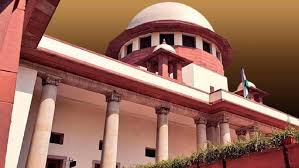Offences punishable under Sections 420, 467, 468, 471, 342, 386, 504 and 506 resply of the Indian Penal Code (Para 1)
The original first informant namely Ravinder Kumar (the respondent No. 3 herein) claims to be an illiterate person and was in the employment of the accused persons from 01.08.2008. (Para 4)
Petitioner has a criminal history of 21 cases lodged by the State and 09 complaint cases, whereas the second petitioner has a criminal history of 14 cases and the first petitioner has a criminal history of 09 cases. (Para 5)
We are of the view that even if the entire case of the prosecution is believed or accepted to be true, none of the ingredients to constitute the offence as alleged are disclosed. It is pertinent to note that the FIR in question came to be lodged after a period of 14 years from the alleged illegal acts of the appellants. It is also pertinent to note that in the FIR no specific date or time of the alleged offences has been disclosed. (Para 10)
We are of the view that the case of the present appellants falls within the parameters Nos. 1, 5 and 7 resply of Bhajan Lal (supra). (Para 11)
It will not be just enough for the Court to look into the averments made in the FIR/complaint alone for the purpose of ascertaining whether the necessary ingredients to constitute the alleged offence are disclosed or not. In frivolous or vexatious proceedings, the Court owes a duty to look into many other attending circumstances emerging from the record of the case over and above the averments and, if need be, with due care and circumspection try to read in between the lines. (Paea 12)
Take for instance the case on hand. Multiple FIRs have been registered over a period of time. It is in the background of such circumstances the registration of multiple FIRs assumes importance, thereby attracting the issue of wreaking vengeance out of private or personal grudge as alleged. (Paea 12)
SUPREME COURT OF INDIA
2023 STPL(Web) 153 SC
[2023 INSC 684]
Mahmood Ali & Ors. Vs. State Of U.P. & Ors.
Criminal Appeal No. 2341 of 2023(Arising out of S.L.P. (Criminal) No. 12459 of 2022)-Decided on 8-8-2023
https://stpllaw.in/wp-content/uploads/2023/08/2023-STPLWeb-153-SC.pdf







